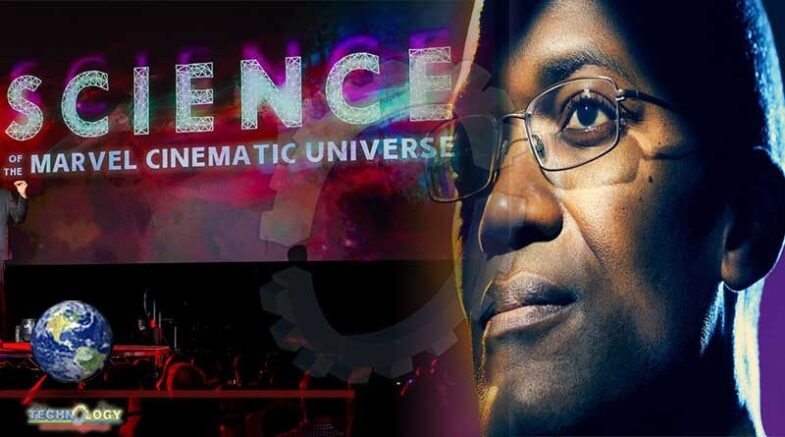Ms. Marvel, Johnson has helped shape some of the MCU’s most memorable depictions of science and scientists in action.

Clifford Johnson spends his days dissecting some of science’s most inscrutable mysteries. How does quantum physics apply to our understanding of space and time? What is the true nature of black holes? What are the origins of the universe?
But, as the Marvel Cinematic Universe (MCU) ventures further into quantum realms, time travel and space exploration, Johnson has added to his daily musings. He’s become the MCU’s go-to guy when its producers need to sprinkle a little scientific realism into their superhero stories.
With credits on television shows and films from Thor: Ragnarok and Avengers: Endgame to the forthcoming Ms. Marvel, Johnson has helped shape some of the MCU’s most memorable depictions of science and scientists in action. With The Falcon and The Winter Soldier due for release on Disney+ this autumn, we spoke to the Los Angeles-based advisor about getting science right in the biggest movie franchise of all time.
Qualifications aside, how does one become Marvel’s go-to science advisor?
My involvement varies from project to project and I’m by no means the only scientist they have on speed dial. The US National Academy of Science set up The Science and Entertainment Exchange to try and get better representation of science and scientists in entertainment media, and I came to the MCU through them. Marvel has been extremely smart in how they try to represent science. I call it “Marvel science”. It’s obviously not real science, but it is rooted in things from the real world.
Is your involvement consistent from film to film?
It varies. The first thing I do is read the script and make copious notes and suggestions on every bit that I can. Sometimes they just want some scientific buzzwords, and to know what certain things might look like. In Thor: Ragnarok I was brought in to advise on wormholes. I suggested that each wormhole has a different character and visuals depending on what kind of astrophysical object we find at its end.
What’s the most direct impact you’ve had on the story?
It’s fun when you get to work with the filmmakers from an early stage and can do a deep dive into the story. In that way, the science can get into the DNA of the storytelling. An example is in Agent Carter: they had this exotic material they wanted to use throughout the second series which I advised on based on knowledge of real life exotic materials. This was everything from containment of a substance you can’t touch to how they might move this substance (I suggested magnetic fields) and designing machines which they actually built and used on set.
How detailed does it get? Do you sneak things in?
In season two of Agent Carter I filled the blackboards in Howard Stark’s lab with period-appropriate equations, modified slightly to relate to the problems they were trying to solve. Maybe me and one other person would appreciate what’s in those equations, but it was fun.
As a huge comics fan, to what degree have you tried to influence the direction of the MCU?
As Agent Carter was about the early days of what would become SHIELD, I started suggesting to whoever would listen that this would be a good point to start building a reference framework that could be used for the future films, particularly with regards to the energy sources that later became the Infinity Stones. I offered to help them write the physics rules for them, so that they would be consistent from film to film, but no one got back to me. I think I was being a little bit optimistic about how much they wanted me to worry about that stuff!
What’s the most important thing to get right?
I want to give people the opportunity to recognise that everyone can be involved in science. In the comics, people like Tony Stark do “science”, meaning they can do anything in any scientific discipline. I wanted to change that because science is a collaborative field. In Infinity War they did a really good job of bringing in Shuri to help them save Vision (although I can’t claim that’s a result of my suggestion). Representation of people doing science in the MCU has evolved from just white men.
Originally published at Wired
